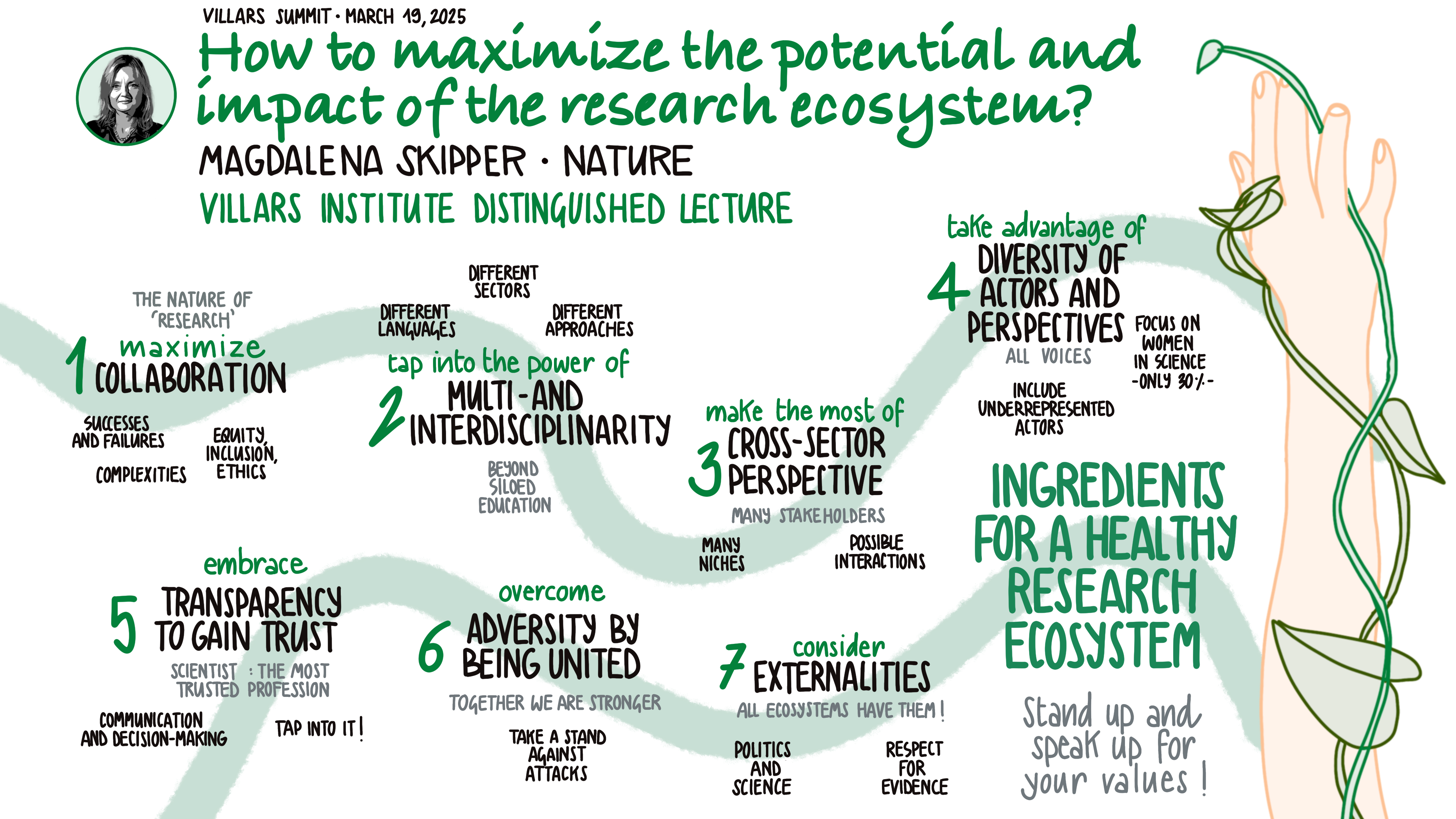Ideas from the Speaker
Scientific research is a complex ecosystem that, much like the natural world, is under attack. To ensure the continued pertinence and impact of the field, we must ensure that science is as healthy and reliable as possible. Lecture attendees learned how the research ecosystem’s potential and impact can be maximized. As in a natural ecosystem, the resilience of the research ecosystem depends on interactions, communities, robustness, diversity, and a dynamic, ever-changing nature.
Research by its very nature and magnitude must be a collaborative endeavor. While this collaboration has been increasing over the last century, it needs to be carefully managed to remain equitable. Healthy interaction within the scientific research ecosystem entails collaboration between individuals and multi- and interdisciplinary connections across fields. Researchers must avoid helicopter science and ethics dumping, ensuring that underprivileged researchers are not intimidated and outcompeted by labs and teams with greater resources.
Cross-sector perspectives should be incorporated to ensure that research communities retain their resilience and impact. We must acknowledge the role of the many stakeholders who need to work in tandem, including the private sector, non-governmental organizations, research publishers, policymakers, politicians, and philanthropists. We should be mindful of the connotations and conventions of the jargon used in different fields and exercise patience when collaborating across sectors, as it is crucial to break down silos and reach holistic, insightful conclusions. As a result, educational systems could benefit from reducing the separation between fields, encouraging researchers to embrace perspectives and methodologies from other areas of science.
The research ecosystem is a powerful body that controls which questions are being asked and how they are answered. To ensure that those answers and questions remain reliable and unbiased, diversity is key. Fostering a diverse range of voices and perspectives will maximize opportunities for everyone to contribute to research. Equally important is a plethora of ways of answering these questions; answers must be framed differently to best reach diverse audiences and stakeholders. The robustness and continued impact of the research field rely on trust and transparency, unity in the face of adversity, and an in-depth awareness and management of externalities. Transparently communicating uncertainty and relying on concrete methodologies gives science traction and reverence among the public. Science is currently one of the world’s most trusted professions, and we must tap into that trust to effectively communicate important messages.
Even so, funding cuts and inflammatory rhetoric threaten the very pillars of science in many countries around the world. To resist this attack, we need to trust that the facts are the foundation: researchers must act with quiet courage, continuing to work towards truth and solutions. In addition, science does not exist in a vacuum as it is intrinsically intertwined with politics. Therefore, we need to cultivate an atmosphere of respect between the two fields to work effectively towards our common goals of sustainable development and growth.
These properties of research can be leveraged and enhanced to benefit science’s positioning on the global stage, especially in the modern misinformation pandemic.
Insights from the Audience
In the discussion following the lecture, the role of artificial intelligence (AI) in aiding or influencing research was addressed. Some participants questioned whether AI represents an existential crisis for humanity as a species, but it was ultimately agreed that AI can be an extremely powerful tool to analyze data and monitor the environment and biodiversity. The speed of data generation and processing enables us to take massive steps forward. Even the biases that AI may reflect can be tackled by increasing diversity in the research field and by interrogating data to understand and be carefully aware of its context. However, AI requires a significant amount of energy: we must continue to make it more sustainable to reconcile its impacts on the planet with its potential to do good.








